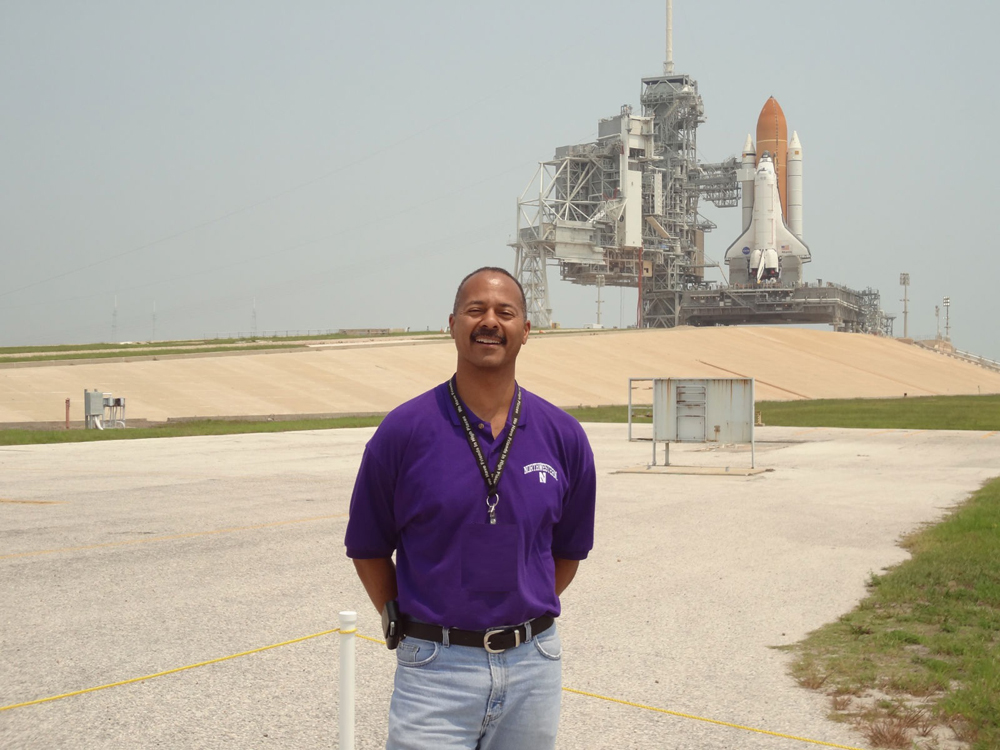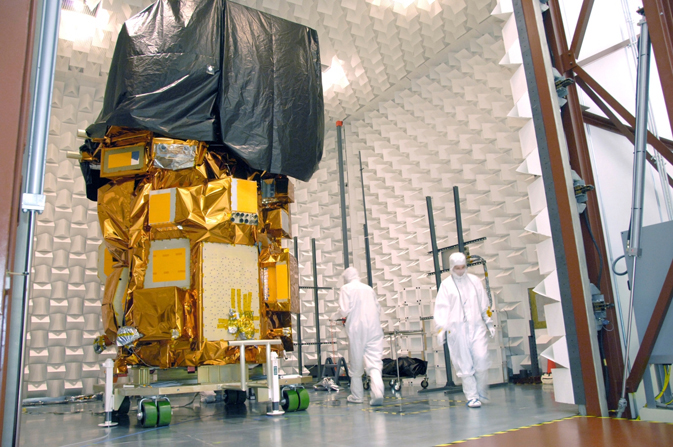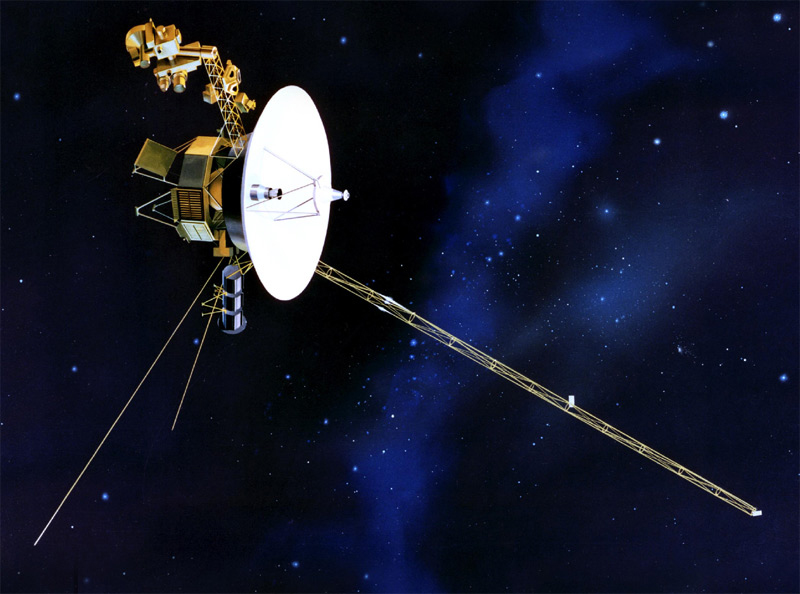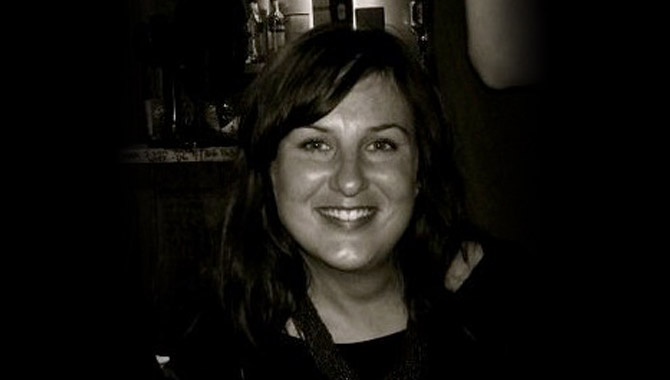
Vol. 5, Issue 9
Once told shed never make it in the space sector, Agnieszka Lukaszczyk shares what it took to build her career.
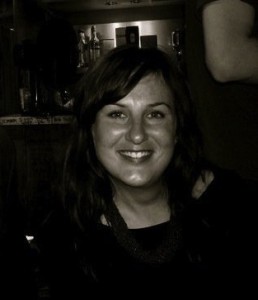
Agnieszka Lukaszczyk is currently the director of the Secure World Foundation’s Brussels office. Prior to her current position, she served as Executive Officer and Chair of the Space Generation Advisory Council.
Image courtesy of Agnieszka Lukaszczyk.
Now in her fourth year at the Secure World Foundation, an organization that promotes sustainable and peaceful uses of space, Agnieszka Lukaszczyk is currently the director of its Brussels office. In addition to her day job, she was formerly the Executive Officer of the Space Generation Advisory Council from 2006 to 2009 and then its Chair from 2009 to 2011, making her a regular presence on the international stage in aerospace. Still early in her career, Lukaszczyk took the time to reflect upon what it took to get to where she is today with ASK the Academy.
ASK the Academy (ATA): You once observed that people are sometimes skeptical about young people walking right into the space industry, and that they really need to prove themselves and build credibility. Why do you think that’s true?
Agnieszka Lukaszczyk: I think the main reason for that is that there is a big generational gap in the space sector. For instance, when I entered the industry, I noticed that the population skews older and is mostly men, not much in the middle age range, and then you have a lot of young professionals or students. I think what happens is that there hasn’t been really a natural progression like with other sectors where you have people of different ages and from different groups. It’s just very strange for people who have been here forever, for twenty or thirty years. They think they know everything [because] they’ve been doing it for a very long time.
I go to a lot of meetings or conferences, and most of the time I’m the youngest person in the room and very often I’m the only woman. My area of interest and my expertise is now in space policy. It’s a lot of politicians and decision-makers that go to a lot of UN meetings, multilateral or bilateral meetings, NATO, etc. Those are diplomats who have a lot of experience. When I came in, no one took me particularly seriously. They thought I was probably an intern or a student who was doing research for school. What do I really know? What can I really bring into the table that [they] don’t know already? A lot of these people have had to work for years to get…to be invited to these meetings that I’m invited to at half their age. So sometimes it almost feels like they feel like it’s inappropriate. I have to work myself up to that. I felt like I had to work—and not just me, a lot of young people“IACET’s reach is global, and it is an honor to be chosen from among so many elite organizations for this award,” said Donna Wilson, APPEL Curriculum Lead. “We graciously accept this recognition and will continue to strive for excellence.”we really have to be extra savvy, working more and engaging more to show that we really have something to say that’s relevant, and that we can contribute to the conversation.
I was based in Vienna before I was based in Brussels. I was in Vienna for four years when I was working for the Space Generation Advisory Council (SGAC), and when I was there I had the privilege to present to the UN Committee on the Peaceful Uses of Outer Space (COPUOS). SGAC did not have a representative for a very long time, so they hadn’t really seen anybody there for a while. And I show up at 26 at the time and I make my first statement. Of course, I was extremely nervous and overwhelmed, and it was a room filled with a lot of high-level people and then there was me, a young person with my first job. So I made my statement, and afterwards one gentleman from one delegation came up to congratulate me. He told me “Ah, this was a very good statement, well done, I’m sure this was a really great experience for you. You know, friendly advice, you should probably look for other opportunities because you are never going to make it in this game, in this environment.”
I was really shocked to hear that. And he was nice about it. It was almost like he thought he was doing me a favor, saying something like that to me. Of course, he didn’t know me enough to know that such a statement would only motivate me to do better and that I’m going to work very hard to get to where I wanted to be. It took a long time to put myself on the map and show that I’m doing something here that matters and I’m still learning, but nevertheless I should be taken as seriously as anybody else.
ATA: So how have you seen young space professionals go about building credibility?
Lukaszczyk: I think my general advice would be for young people to be very motivated and serious about what they are doing, and simply do their best, not give up, and not sit in a corner. I was actually given this advice once. Right before that statement I gave to the UN, I was extremely nervous and I didn’t know if I could do it well, and I was really, really worried. I had one mentor I had met there just a few weeks ago, who was the director of the UN Office for Outer Space Affairs (UNOOSA) at the time, and I was talking to him and I said, Look, what can I say that these people don’t know? I don’t know if they really want to listen to me, etc., etc.
He said, “You have a voice, you have a seat herea permanent observer’s seatyou have a right to speak. You’re representing a young generation, and they should hear what you have to say.” He told me that at the beginning you never let anybody put you in a corner, or you will stay there for a very long time, if not forever.
I think you need to have some sort of confidence, and I think there is a big difference between confidence and arrogance. There’s a fine line there because I’ve noticed that when you work with people who are very accomplished, well known and established, they don’t like people who walk in thinking they own the room and that they know everything better. That’s not the way to do it. One has to be humble but confident at the same time, and persistent in their activity.
So I’ve always showed up to the meetings, I’ve always showed up prepared, always have done my readings, I’ve always done my research. I was very assertive in terms of meeting people, setting meetings, showing that I care, that I’m impassioned about the kind of work that I’m participating in, and that I’m making some progress. I think that in general this is something that I would advise to every person. Try to do your best, be humble, but be confident, and try to make sure that your voice is heard even if it’s not always received. If you keep repeating the same thing over and over again, someone will finally catch on to it.
And after some time, months or even years, people will get used to the fact that [you’re] always there in meetings and always participating in them, submitting opinions and expertise. I think that’s my advice. Don’t be intimidated and don’t be overwhelmed and become an assistant to somebody because they’re more important and older. Be useful to them and assist them, but don’t make yourself a coffeemaker or a copy maker.
ATA: What role has mentorship played in your young career?
Lukaszczyk: For me it was quite important. I have to say I was very new to the space sector when I entered it. I didn’t study space. If you talk to the people with technical backgrounds and those who are engineers and working on techie stuff, this is probably something that they’ve always wanted to do. They’ve always wanted to be an astronaut, that’s their passion and dream, and so they’ve researched things before and maybe they knew people already before they entered the sector as students.
My story was a little bit different. I studied international politics and security, and it just happened that my first job ended up in space. I didn’t know anybody. I didn’t have any network. I didn’t have any contacts. I was very fortunate that at the beginning I met a few key people who were very, very helpful to me in many ways. I don’t think they even realized what impact they had on me and my career.
These were people who were usually older and usually had established positions. These were the people who took time to answer my emails, met with me, gave me advice, and talked to me if I had problems and they cared, they genuinely cared. They saw that there’s this young person kind of freaking out and nevertheless determined and trying to make a difference here, and thought it was worthwhile for them to help me out.
One of them, the director of the UNOOSA, who was a very busy guy in an extremely high position, would [send me] emails…at 3:00 a.m., when he was still in the office. I said to him, “You always meet with me and you always answer my emails. I’m really impressed and I really appreciate it. Why do you do this?”
He told me, “You know, a lot of people helped me at some point, and it’s my opportunity to pay it forward.”
So I think that this is something that I hope everyone will remember one day when we are in positions to help others and to pay it forward. It wasn’t about getting me a job or getting me a raise, or anything like that. It was more of a substantive kind of help, and I knew I had a support system and two or three of these people I’m in contact with still to this day and still bother every once and a while. I feel very fortunate that our paths have crossed.
ATA: What do you think is the biggest challenge facing the next generation workforce?
Lukaszczyk: I think in particular we always hear about this problem that not enough young people in general are interested in hard sciences. That now it’s very cool to study to be a lawyer or to study marketing or finance or advertising and PR or whatever. Or if you’re an engineer you go into IT or something, that’s where the money is. So I think for the future we need to make sure that we do proper outreach and raise awareness about what space is and how it brings all kinds of benefits to society, and work on the stigma. When I talk to people who are not involved in space and I tell them that I work in the space sector it sounds extremely intimidating. Everyone says, “Whoa how did you get this job? You must be like a genius or a rocket scientist.” And I think, well, not really.
I’m always surprised at how many people with various backgrounds, besides the usual types like astrophysicists or engineers or astronomers work in the space sector. There are people who are lawyers, economists, and environmentalists, there’s geography, cartography, etc. Various backgrounds are included and I don’t think people quite know about this. A lot of people think space is cool, but I’m never going to get a job there, so I need to do something that is more useful. It sounds so prestigious and incredibly difficult and hard to get to, and a lot of people don’t think it’s a possibility. So you want to make sure that we get bright minds in our sector and they’re not running away from us to the IT sectors or auto manufacturing, etc. We need to do a little better job of attracting people by offering jobs that are interesting and rewarding.
ATA: In your experience, what ways do you think are most effective for the more seasoned and established practitioners to share what they know with the next generation?
Lukaszczyk: I don’t think it’s as difficult as some may think. First of all, if they hire somebody who is young or have somebody on their team who is young, they need to have them there for a reason. They need to have a purpose for them. They need to include them in the activities that matter and not to just think, “Oh you’re in the bottom of the lot, therefore you’re not important or your opinion is not important.” Take time to have a discussion on a topic that is important at the moment in the work environment, and listen to their opinions. There may be an idea for publishing a paper that’s going to help them. That’s going to help their resume and that’s going to force them to do research that is of course important for their job. Or send them to a conference that may broaden their horizons. Keep the fire going.
This is exciting what we’re doing here and whatever that might be if you’re an engineer or a project manager or a space lawyer, I think in general our sector is extremely exciting. The people who come to this sector are the people who care about it a lot and who have a lot of passion and enthusiasm, and I think it’s in the best interest of every company and organization to keep that enthusiasm going because they’re going to be working very hard and they’re going to be coming up with new and innovative ideas and they’re going to be the ones who are willing to stay extra time. Don’t burn them out, but make it very exciting so that they grow.
I have a friend who just got a job in a space organization a year ago, and she told me her boss rarely talks to her. Of course he knows her name and he sees her in a hallway and he says, hello how are you. She said, “I wish he would sit down with me for coffee or lunch and ask me how I am doing. What is it you like about this job? What would you like to change? What do you think about this project that we’re working on? I would love that, but I don’t think he thinks I know enough to contribute.” She’s demotivated. Paying attention to young folks really makes a difference.
ATA: Do you think it’s because people are too busy?
Lukaszczyk: Time is definitely an issue, but I think it’s a matter of where there’s a will, there’s a way. I think a lot of it depends on the personality really. There are some people who, when they become very important they feel like they don’t really need to hear so much input, particularly from somebody who is new and fresh in the sector because they don’t feel like they have anything interesting to say. You hear about this all the time.
Then you hear about this boss that is so wonderful. I was telling you about one of my mentors, who is an extremely high-level guy and extremely busy. Yes, he took the time to meet with me, but it’s not like we were meeting every day. When there was a need, he always found some time. Even being on the phone for like ten minutes made a difference. Even answering my email. If I knew somebody like that answers my email directly and it wasn’t his secretary. I thought, wow that’s really cool. This guy actually reads what I have to say, that’s really awesome, so I need to make sure that I’m sending him good stuff so that he actually reads it, so I’m going to make an extra effort there.
Of course we’re all extremely busy and we’re juggling several balls in the air and running from meeting to meeting. It’s not that we have bad intentions but sometimes we forget that there’s this sort of legacy that we want to leave and we should slow down a little bit and pay it forward because that’s the right thing to do.







